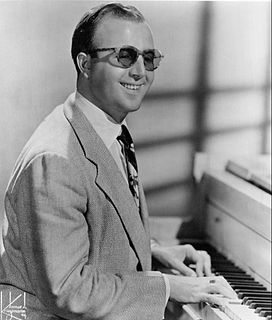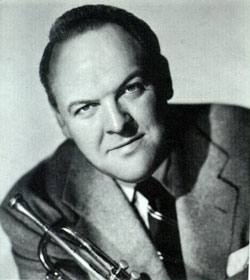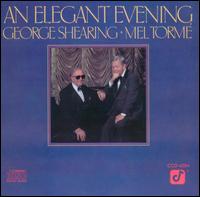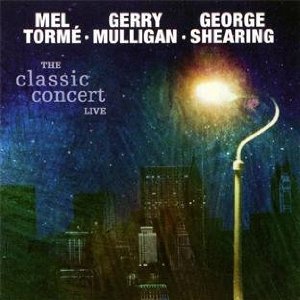"On the Swing Shift" is a 1942 song composed by Harold Arlen with lyrics by Johnny Mercer for the film Star Spangled Rhythm , where it was introduced by Marjorie Reynolds, Betty Jane Rhodes and Dona Drake. [1]

Harold Arlen was an American composer of popular music who composed over 500 songs, a number of which have become known worldwide. In addition to composing the songs for the 1939 film The Wizard of Oz, including the classic "Over the Rainbow", Arlen is a highly regarded contributor to the Great American Songbook. "Over the Rainbow" was voted the 20th century's No. 1 song by the Recording Industry Association of America (RIAA) and the National Endowment for the Arts (NEA).

John Herndon Mercer was an American lyricist, songwriter, and singer. He was also a record label executive who co-founded Capitol Records with music industry businessman Buddy DeSylva and Glenn E. Wallichs.

Star Spangled Rhythm is a 1942 American all-star cast musical film made by Paramount Pictures during World War II as a morale booster. Many of the Hollywood studios produced such films during the war, generally musicals, frequently with flimsy storylines, and with the specific intent of entertaining the troops overseas and civilians back home and to encourage fundraising – as well as to show the studios' patriotism. This film was also the first released by Paramount to be shown for 8 weeks.
The song is about a romance between workers in an aircraft factory during the Second World War working the "swing shift"; between 4pm and midnight. [2] [1] [3] Glenn T. Eskew described the song as "one of the first songs to recognize the new role of women laboring in the factories" and one of several lyrics Mercer wrote that "betrayed a weakening of traditional constraints of societal norms" during the war in his 2013 biography of Mercer, Johnny Mercer: Southern Songwriter for the World. [4]
Mel Tormé and George Shearing performed the song on their 1990 live album Mel and George "Do" World War II . [5] Tormé later described the song as "a personal favorite of mine" in his 1994 book My Singing Teachers. [6]

Melvin Howard Tormé, best known as Mel Tormé and nicknamed The Velvet Fog, was an American musician, a singer of jazz standards. He was also a jazz composer and arranger, drummer, an actor in radio, film, and television, and the author of five books. He composed the music for "The Christmas Song" and co-wrote the lyrics with Bob Wells.

Sir George Albert Shearing, OBE was a British jazz pianist who for many years led a popular jazz group that recorded for Discovery Records, MGM Records and Capitol Records. The composer of over 300 titles, including the jazz standards "Lullaby of Birdland" and "Conception", and had multiple albums on the Billboard charts during the 1950s, 1960s, 1980s and 1990s. He died of heart failure in New York City, at the age of 91.

Mel and George "Do" World War II is a 1990 live album by the American jazz singer Mel Tormé and the British jazz pianist George Shearing.








